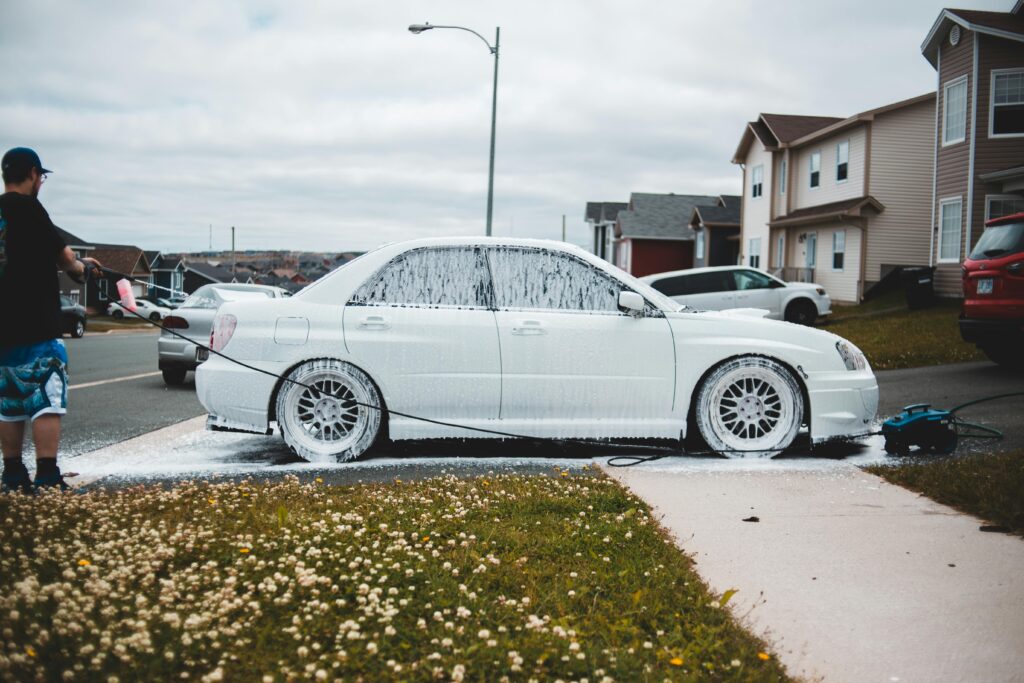Table of Contents
ToggleIntroduction
Running a pressure washing business isn’t just about spotless sidewalks and satisfied clients, it’s about protecting the business you’re building. And that starts with having the right pressure washing business insurance in place. Think of it as your silent business partner, one that steps in when the unexpected happens.
Many pressure washing business owners underestimate how much can go wrong on a job site until it’s too late. A cracked window here, a slip-and-fall there, or even a stolen pressure washer can quickly turn into a financial nightmare.
Let’s break it all down, so you know exactly what pressure washing insurance coverage you need, and why skipping it is like pressure washing without water.
Why Pressure Washing Businesses Face Higher Risks
Pressure washing may seem straightforward, but it’s full of potential hazards that can lead to lawsuits, costly damage, or environmental violations. Here are the most common risks you need to prepare for:
Property Damage Happens Fast
One slip of the hose and you could blast paint off siding, gouge wooden decks, or even crack delicate surfaces. If you’re working on high-value homes or commercial properties, even a minor error could lead to major repair costs.
⚠️ Injury Risks (To You, Your Team, or Bystanders)
From slippery surfaces to heavy-duty equipment, pressure washing sites are full of physical hazards. If someone gets hurt on your watch, even if it wasn’t your fault, you could be looking at legal and medical bills in the thousands.
Equipment Theft and Damage
Your pressure washers, water tanks, and surface cleaners aren’t cheap. If they’re stolen from your truck overnight or damaged in the field, it could stall your business for weeks.
🌍 Environmental Fines Are No Joke
Using certain detergents or failing to properly dispose of runoff water can violate local EPA regulations. If pollutants end up in storm drains or public waterways, you could face steep fines.
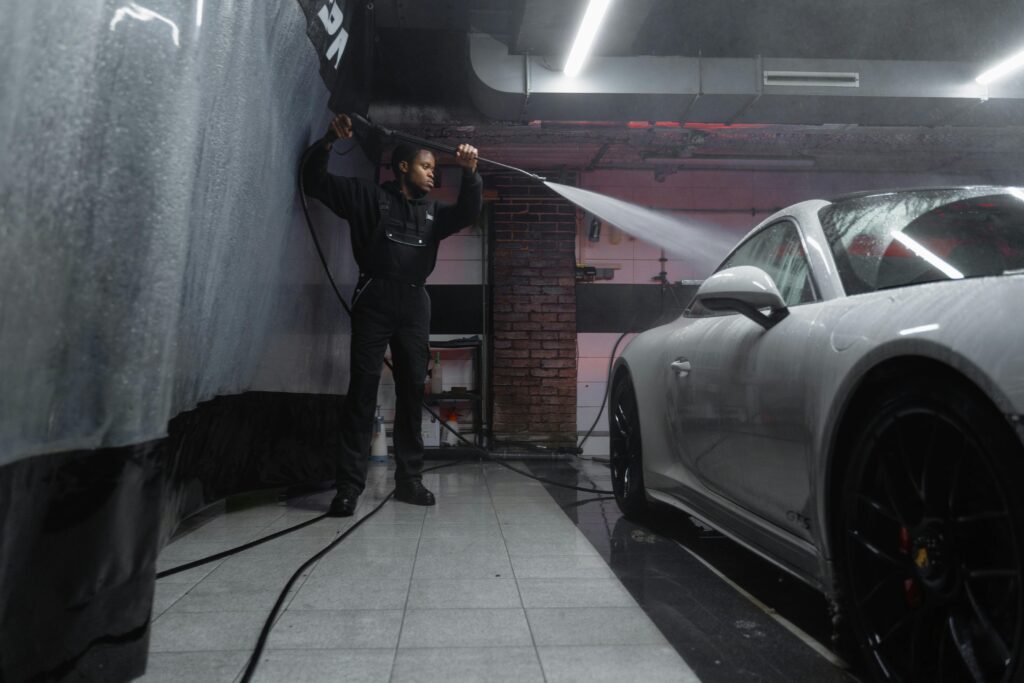
The Must-Have Pressure Washing Business Insurance Policies
Here’s the good news: the right pressure washing business insurance plan protects you from all of the above and more. Let’s look at the policies you should absolutely consider.
General Liability Insurance (Non-Negotiable)
What it covers: Third-party bodily injury, property damage, and legal fees.
This is the bedrock of your protection. If a client sues you for damaging their property or someone slips in your work area, this coverage pays the price so you don’t have to.
🛡️ Example: You accidentally etch a client’s stone driveway with too much PSI. General pressure washer liability can cover the repairs and protect your reputation.
Commercial Property & Equipment Insurance
What it covers: Theft, vandalism, fire, and equipment breakdown.
Whether you’re operating from a storefront or out of your truck, your gear is your lifeline. This policy ensures you can quickly replace or repair equipment without draining your savings.
Workers’ Compensation Insurance
What it covers: Medical expenses and lost wages for injured employees.
If you hire even one part-time worker, many states legally require this insurance. It also protects you from lawsuits that could arise from job site injuries.
💡 Did you know? A simple back injury from lifting hoses or tripping on wet pavement can cost over $10,000 in medical bills.
Commercial Auto Insurance
What it covers: Accidents, damage, and liability involving your work vehicle.
Personal auto policies often don’t cover work-related incidents. If you’re transporting equipment or traveling between job sites, commercial coverage is essential.
Pollution Liability Insurance
What it covers: Cleanup costs, legal claims, and environmental fines.
With water runoff and chemical use in the mix, pollution claims are a real risk—especially in urban or waterfront areas.
What Can Go Wrong? Real Claims That Happen Often
Still wondering if insurance is worth the cost? Let’s walk through a few real-world scenarios that pressure washers have faced.
Broken Window, Big Headache
You’re cleaning a two-story home when the pressure blasts through a window. The homeowner wants you to pay for glass repair—and new blinds. Without insurance, you’re out of pocket fast.
Employee Slip and Fall
Your assistant slips on wet concrete while loading gear. Now they need surgery—and they’re filing a worker’s comp claim. No coverage? You could be on the hook for five figures.
Neighbor’s Yard Contaminated
Runoff from your job site accidentally drains into a neighbor’s yard, killing their plants and contaminating their soil. Environmental agencies get involved. Pollution liability insurance can step in to cover fines and cleanup.
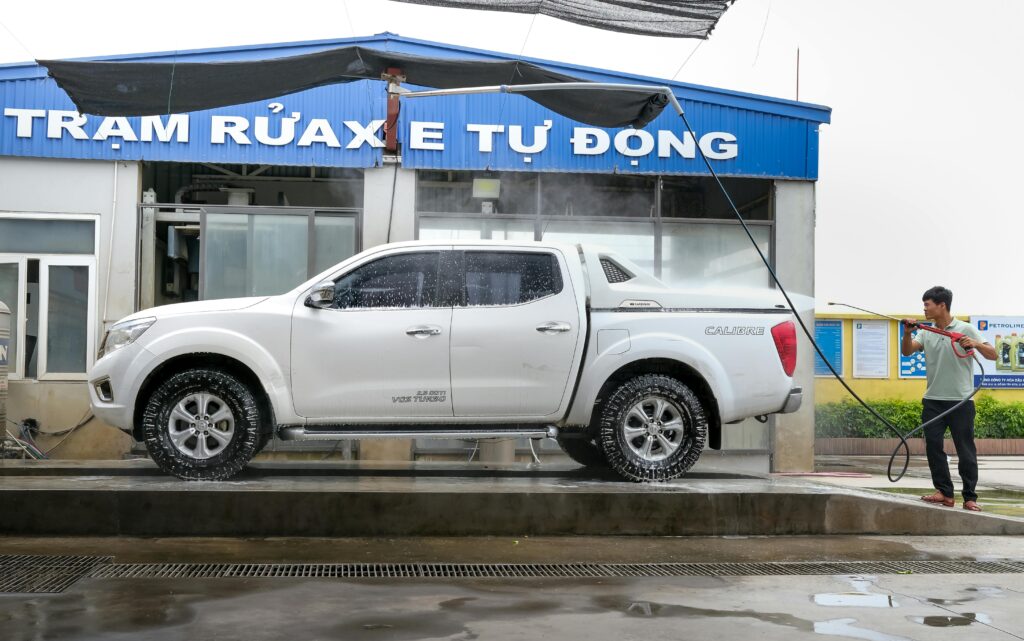
Cost of Pressure Washing Business Insurance vs. Cost of Claims
Let’s break it down in simple numbers.
Here’s a side-by-side look at potential claim costs vs. what you’d pay annually for insurance:
| Incident Type | Out-of-Pocket Without Insurance | Annual Premium With Insurance |
|---|---|---|
| Property Damage | $5,000+ | $500 – $1,000 |
| Employee Injury | $10,000 – $30,000+ | $700 – $1,500 |
| Equipment Theft | $2,000 – $10,000 | $300 – $800 |
| Environmental Violation | $20,000 – $50,000 | $600 – $1,200 |
📌 Source: Next Insurance and Insureon
How to Choose the Right Pressure Washing Business Insurance
Ready to protect your business? Here’s how to get started:
Step 1: Work With an Insurance Provider Who Knows Your Industry
Look for providers who understand the unique risks of pressure washing. Many online brokers can tailor packages based on your business size and location.
Step 2: Compare Quotes
Always shop around. Premiums can vary significantly depending on your experience, location, number of employees, and coverage limits.
Step 3: Read the Fine Print
Pay attention to exclusions. Some policies might not cover subcontractors, chemical use, or certain types of vehicles.
Step 4: Bundle Policies
You may be able to save by bundling general liability, commercial auto, and equipment coverage into a Business Owner’s Policy (BOP).
Shocking Costs of Legal Claims in the Pressure Washing Industry
Running a pressure washing business can be rewarding, but it’s essential to understand the risks involved. Many owners underestimate the financial implications of potential legal claims. Legal claims can arise from various issues, such as property damage, personal injuries, or even contractual disputes. When these situations occur, the costs can be shocking and leave you unprepared.
Common Legal Claims in the Pressure Washing Industry
Here are some of the most common claims that pressure washing businesses face:
-
- Property Damage: This occurs when your services inadvertently damage a client’s property, such as siding or landscaping.
-
- Injuries to Clients or Bystanders: High-pressure water can cause injuries, and if someone gets hurt during your work, you could be liable.
-
- Slip and Fall Accidents: Wet surfaces can be hazardous. If someone slips and falls while you are working, you may face a lawsuit.
-
- Equipment Damage: Damaging a client’s property while using your machines can lead to costly claims.
The Financial Impact of Legal Claims
Understanding the costs involved in legal claims is vital for any pressure washing business owner. Even small claims can lead to significant expenses.
Here are some surprising financial facts:
| Type of Claim | Average Cost | Potential Consequences |
|---|---|---|
| Property Damage | $3,000 – $15,000 | Repair costs, legal fees |
| Personal Injury | $10,000 – $50,000 | Medical expenses, lost wages |
| Slip and Fall | $5,000 – $30,000 | Medical costs, potential lawsuits |
| Contractual Disputes | $2,000 – $25,000 | Legal consulting fees, potential settlements |
Why You Need Pressure Washing Business Insurance
With such high potential costs, pressure washing business insurance becomes crucial. Many owners think they can avoid insurance, but this is a risky decision. Here’s why having adequate coverage is necessary:
-
- Liability Coverage: This protects you in case of claims for property damage or injuries. Without it, you’re responsible for all costs.
-
- Legal Fees: Even if you aren’t at fault, defending yourself in court can be expensive. Insurance can help with these costs.
-
- Peace of Mind: Knowing that you are covered allows you to focus on your services and client satisfaction.
Types of Insurance to Consider
When selecting insurance for your pressure washing business, consider these options:
-
- General Liability Insurance: Covers property damage and injuries.
-
- Commercial Auto Insurance: Protects your vehicles used for business purposes.
-
- Workers’ Compensation Insurance: Essential if you employ others. Protects against workplace injuries.
-
- Equipment Insurance: Covers damages or loss to your machines and tools.
Video: Do You Really Need Pressure Washing Business Insurance?
How to Choose the Right Insurance for Your Pressure Washing Business
Starting a pressure washing business can be an exhilarating venture, but it’s crucial to ensure that you’re well-protected with the right insurance coverage. As a business owner, you should understand how to choose the best insurance policy tailored to your specific needs. The stakes are high, and being aware of potential risks is key to your success.
When searching for insurance, consider the following factors that will help guide your decision:
Understanding Your Coverage Needs
Your unique business operations will determine the type of insurance you need. Key areas to evaluate include:
-
- Property Damage: Will you be using equipment that might damage a client’s property? Protecting yourself against liability claims that arise from accidents is essential.
-
- Injury Protection: Accidents can happen. Ensuring that you have coverage for personal injuries to you and your employees is important if accidents occur while on the job site.
-
- Vehicle Insurance: If you operate a vehicle for your business, make sure you have proper commercial vehicle insurance to cover any incidents that may happen en route.
-
- Equipment Coverage: Your pressure washing equipment is a significant investment. Insure it against theft and damage to avoid sinking costs into replacements.
Types of Insurance Policies to Consider
There are several types of insurance policies that would benefit your pressure washing business:
-
- General Liability Insurance: This policy protects you against claims of bodily injury or property damage. If a client claims that you damaged their property or caused injury, this insurance can help with legal fees and settlements.
-
- Workers’ Compensation Insurance: If you have employees, this insurance is often required by law. It covers medical expenses and a portion of lost wages for employees injured on the job.
-
- Commercial Auto Insurance: If your business vehicle is involved in an accident, this policy covers damages and injuries that could result from the incident.
-
- Equipment Insurance: This protects against loss or damage to your pressure washing equipment, whether from theft, accidental damage, or natural disasters.
Choosing the Right Insurance Provider
Not all insurance providers are created equal.
When selecting a provider, keep the following tips in mind:
-
- Research and Reviews: Look for insurance companies that specialize in small businesses and specifically in the cleaning or pressure washing industry. Reading reviews can offer insight into their reputation.
-
- Compare Quotes: Don’t settle for the first quote you receive. Comparing several providers will give you a better sense of pricing and the coverage options available.
-
- Understand the Fine Print: Before signing any policy, read through the terms carefully. Look for exclusions or limitations so that you can make an informed choice.
-
- Ask About Discounts: Inquire about possible discounts, such as bundling policies, loyalty programs, or discounts for being claims-free. These can significantly lower your premium costs.
Evaluating Policy Limits and Deductibles
Once you’ve identified the insurance policies you need, the next step is evaluating policy limits and deductibles:
-
- Policy Limits: This refers to the maximum amount your insurance will pay in the event of a claim. Make sure your limits are adequately high to cover potential damages.
-
- Deductibles: This is the amount you’ll pay out-of-pocket before your insurance coverage kicks in. Lower deductibles mean higher premiums, so choose what works best for your finances.
Regularly Reviewing Your Insurance Policies
As your business grows, your insurance needs may change. Regularly reviewing your policies ensures that you’re still adequately covered. Consider adjusting your coverage or seeking additional insurance as your business expands.
Your pressure washing business is more than just a paycheck; it’s an investment in your future. Selecting the right insurance can protect you from unforeseen events and provide peace of mind. By understanding your needs, comparing policies, and staying informed about your coverage, you can focus on what you do best: delivering top-notch pressure washing services.
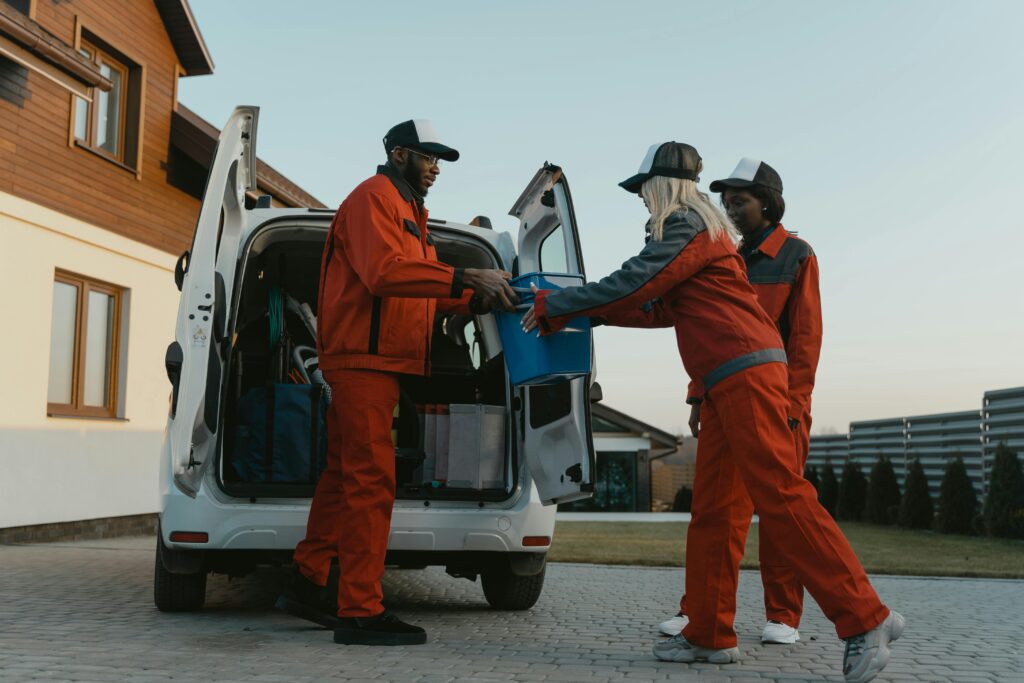
Real-Life Claims: Lessons Learned from the Pressure Washing Field
In the world of pressure washing, running a business is thrilling, but it comes with its fair share of challenges. Each job poses unique risks, and real-life claims often reveal surprising lessons. Knowing what can go wrong helps you prepare and safeguard your business effectively.
First, let’s explore some common claims that pressure washing companies face. These scenarios highlight the unpredictable nature of the industry:
-
- Property Damage: Imagine finishing a job, only to find that the pressure washing left behind a mark or damaged paint. A careless mistake can lead to hefty repair costs.
-
- Injury to Workers: Pressure washers can be heavy and unwieldy. Incidents involving worker injuries are not uncommon. If a worker slips or strains themselves while on the job, medical expenses and claims can quickly add up.
-
- Client Complaints: Every business owner wants happy customers. A client might complain about unsatisfactory work, leading to potential claims for refund or damages.
-
- Equipment Theft: Leaving your equipment unattended might seem harmless, but it is riskier than it sounds. Theft can cause financial strain, especially if you don’t have insurance to cover the loss.
-
- Accidents with Chemicals: When using cleaning agents, accidents can happen. Mishandling chemicals can lead to skin burns or environmental harm, resulting in costly lawsuits.
Looking deeper into these scenarios, it’s vital to recognize your insurance options.
There are various types of pressure washing business insurance that serve to protect against these potential claims:
| Type of Insurance | Description |
|---|---|
| General Liability Insurance | Covers property damage and injuries to third parties. Essential for any pressure washing business. |
| Workers’ Compensation Insurance | Protects against worker injuries, covering medical expenses and lost wages for employees. |
| Equipment Insurance | Protects against theft or damage to your pressure washing equipment. |
| Commercial Auto Insurance | If you transport equipment, this covers vehicles and their use in business-related activities. |
Understanding these types of insurance will prepare you for potential claims. However, it’s the stories from the field that often carry the most impactful lessons:
-
- A Slippery Slope: A company faced a lawsuit after a customer slipped on a wet driveway. Though they had general liability insurance, it was a different policy covering slip-and-fall accidents that would have saved them time and money.
-
- The Renters’ Regret: A business rented pressure washing machines, which ended up causing damage to a home. The owner thought rental insurance was enough, but they discovered it didn’t cover damages caused during operation. This oversight strained their budget.
-
- Slick Marketing: A marketing campaign advertised “streak-free results,” but a customer pointed out unsightly lines after a wash. Although the company excelled in service, the misleading ad led to claims. Keeping marketing truthful is key!
So, what should you take away as you operate your pressure washing business?
Here are a few actionable tips:
-
- Always invest in comprehensive insurance. Know your coverage well to avoid surprises.
-
- Train your employees on safety practices and correct equipment use to minimize accidents.
-
- Maintain clear communication with clients regarding service results, limitations, and expectations.
-
- Regularly review and update your marketing materials to reflect current standards and honesty in service.
By staying alert to the real-life claims and applying the lessons learned, you can protect your pressure washing business. The right preparations can save you time, money, and headache in the long run, allowing you to focus on what you do best, keeping surfaces clean and customers happy.
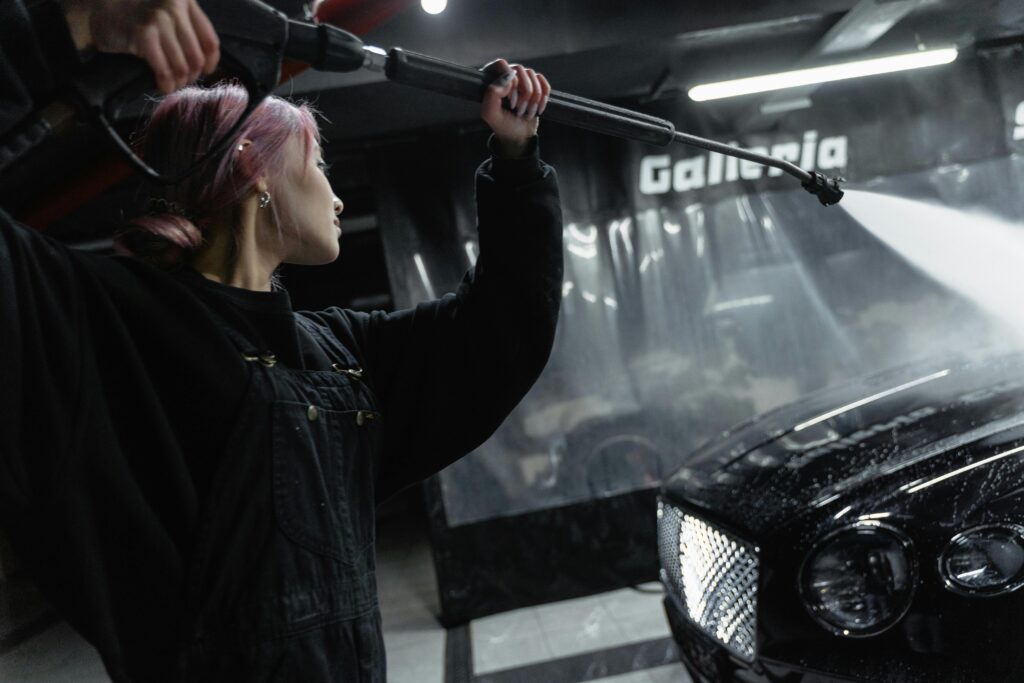
Conclusion
Securing the right pressure washing business insurance isn’t just a smart move, it’s essential. From property damage to environmental claims, the risks are real and potentially costly. Don’t wait for a lawsuit or equipment theft to show you why coverage matters.
Take the time to understand your risks, compare policies, and choose coverage that truly fits your business. The right insurance gives you peace of mind, protects your reputation, and lets you focus on what matters most, growing your business with confidence.

